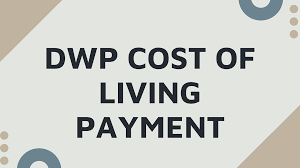In 2025, the United Kingdom continues to grapple with economic challenges, including rising inflation and increasing living costs. To support vulnerable households, the Department for Work and Pensions (DWP) has introduced the Cost of Living Payments. This article explores the structure, eligibility, and impact of these payments on low-income households.

Understanding the 2025 Cost of Living Payments
The DWP’s 2025 Cost of Living Payments aim to provide financial relief to eligible households. The total support amount is £900 per qualifying household, distributed in three installments:
- First installment: £301
- Second installment: £300
- Third installment: £299
These payments are designed to mitigate the impact of increased living expenses on low-income families.
Cost of Living Payments Eligibility Criteria
To qualify for the 2025 Cost of Living Payments, individuals must meet the following criteria:
- Residency Requirement: Must be a UK resident born on or before 23rd September 1958.
- Means-Tested Benefits: Must be receiving at least one of the following benefits:
- Universal Credit
- Pension Credit
- Income Support
- Working Tax Credit
- Child Tax Credit
- Income-based Jobseeker’s Allowance (JSA)
- Income-related Employment and Support Allowance (ESA)
- Winter Fuel Payment: Eligibility for the Winter Fuel Payment is also required.
Eligible individuals receiving qualifying benefits will be automatically assessed; no separate application is needed.

Payment Schedule for the Cost of Living Payments
The Cost of Living Payments are expected to be deposited in November 2025. However, exact deposit dates may vary depending on individual banking providers. Recipients are advised to monitor their bank accounts during this period for incoming payments.
Immediate Financial Relief for Low-Income Households
These payments provide crucial support for low-income households by assisting with essential expenses such as food, utilities, and rent. For many, this financial aid helps in managing existing debts and avoiding further financial strain. For example, a family receiving Universal Credit may use the £301 installment to cover a month’s worth of grocery bills, alleviating immediate financial pressure.
Psychological and Social Impacts
Financial relief from the Cost of Living Payments can significantly reduce stress and anxiety associated with economic hardship. This support contributes to improved mental health and overall well-being. Additionally, it can lead to decreased reliance on food banks and social services, fostering greater community stability.
Limitations and Areas for Improvement
While the payments offer substantial support, concerns remain that the funds may not fully cover the increased cost of living. Some vulnerable groups may also be ineligible for these payments, highlighting potential gaps in support. Recommendations for policy enhancement include increasing payment amounts and expanding eligibility criteria to encompass a broader range of low-income individuals.
Additional Support Measures
Beyond the Cost of Living Payments, the Household Support Fund provides grants to help with essential costs. Eligibility criteria and application processes vary by local council. Other available financial aids include local council grants and energy subsidies. For more information, individuals can visit the official GOV.UK
Conclusion
The 2025 DWP Cost of Living Payments play a vital role in providing financial relief to low-income households amidst rising living costs. Eligible individuals should ensure their information is up to date with the DWP to receive this support. Continued governmental efforts are essential in addressing economic disparities and promoting social welfare.
FAQs
Q1: Do I need to apply for the 2025 DWP Cost of Living Payment?
No, payments will be made automatically to those who are eligible and already receiving qualifying benefits.
Q2: When will the payments be made?
All three payments are expected to be disbursed by the end of November 2025.
Q3: Will these payments affect my other benefits?
No, the Cost of Living Payments are non-taxable and do not affect existing benefits.
Q4: What should I do if I haven’t received my payment?
Contact the DWP directly or visit the GOV.UK website to check the status or report a missing payment.
Q5: Is there additional help available besides these payments?
Yes, the Household Support Fund and other local aid programs offer additional financial support for essentials like food and energy.
